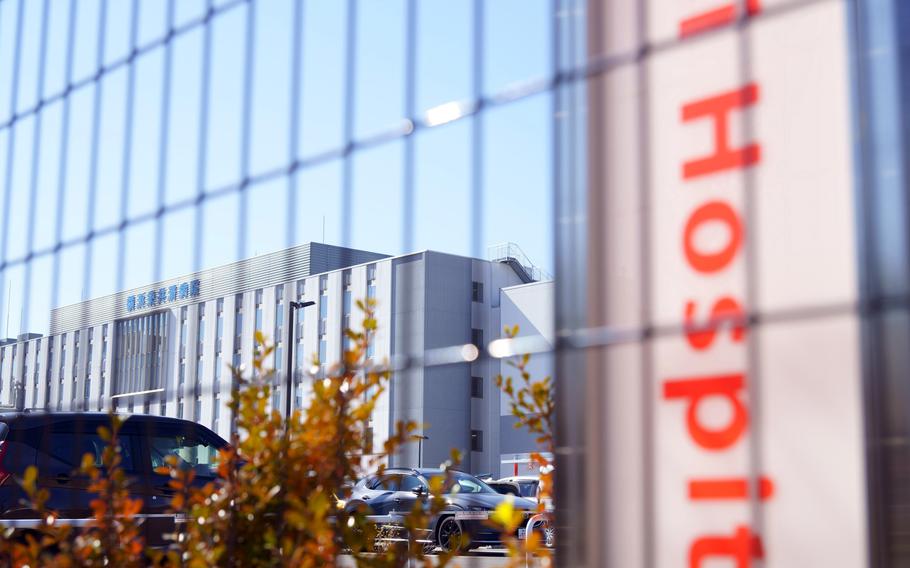
A pilot program from the Pentagon designed to assist Defense Department civilians with navigating Japan's health care system was extended for a second year on Aug. 9, 2025. (Akifumi Ishikawa/Stars and Stripes)
YOKOSUKA NAVAL BASE, Japan — The Defense Department has extended a pilot program to help its civilian employees in Japan find health care, but their family members are still not permitted to take advantage of its services.
The program, which connects civilians with Japanese health care providers and issues payment guarantees, begins its second phase Sept. 30 and continues until Sept. 29, 2026, according to an Aug. 8 memorandum obtained by Stars and Stripes.
The first phase began Jan. 1 with a $4.2 million budget and was originally scheduled to conclude Sept. 29.
The memorandum, signed by Anthony Tata, undersecretary of defense personnel and readiness, identified two “gaps” in the program’s services: interpreter services and coverage for DOD civilian dependents.
The program already offers written translation services and a bilingual customer service call center, but will add interpreter services for medical appointments, “subject to their availability,” according to Tata’s memo and an email Tuesday from Pete Graves, spokesman for the Military Health System.
Assistance for dependents is left for further study during the second phase, according to the memo.
The Japan Civilian Medical Advocacy group, a grassroots organization established to help DOD civilians navigate Japan’s often complex health care system, said it was “encouraged to see this valuable medical resource extended for civilians in Japan,” according to a statement provided Wednesday by group member Alexandra Cummings.
“However, we are disappointed that the service does not extend to dependents and civilian employees continue to be asked to put their families at risk,” the group said.
The group also identified a “critical gap” in accessible emergency care for all Americans in Japan, a topic Tata’s memo does not address.
“Because this program often takes days or longer to provide services, it does not address the urgent risks our community faces in emergencies,” the group said in the statement.
Graves said the program’s first year was intended to establish a structure and explore its benefits.
The second year, he said, will “monitor participant feedback and utilization rates to determine if the contract will expand to include dependents of DoD Civilians.”
Japan is home to approximately 14,600 U.S. civilians and contractors, many of whom have reported significant barriers to health care in Japan, according to an April 3 report from the Government Accountability Office.
Between Jan. 1 and June 30, the program accommodated 1,142 civilian health care cases, according to a graph attached to Tata’s memo. Navy civilians used the program most frequently at 409 cases, followed by 311 cases from the Department of Defense Education Activity.
Other users included civilians with the Army, Air Force, Marine Corps, Defense Commissary Agency and more, including two cases from DHA itself.
Access to health care became a concern for DOD civilians in Japan in December 2022, when DHA limited civilians to space-available appointments only at military health care facilities and encouraged them instead to seek care from local providers, most of which do not accept foreign health insurance.